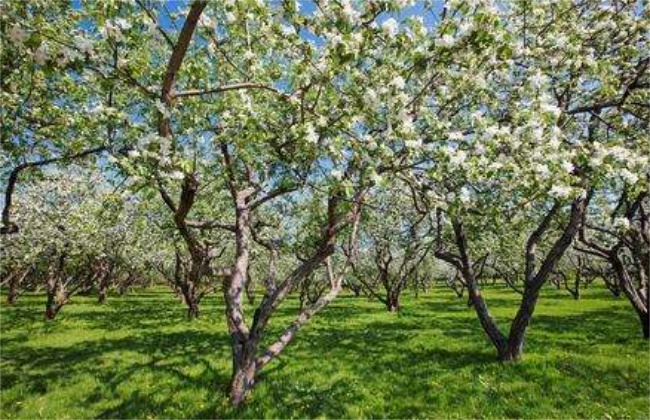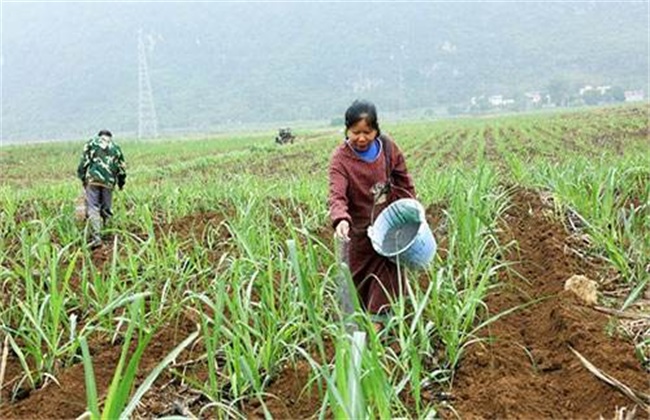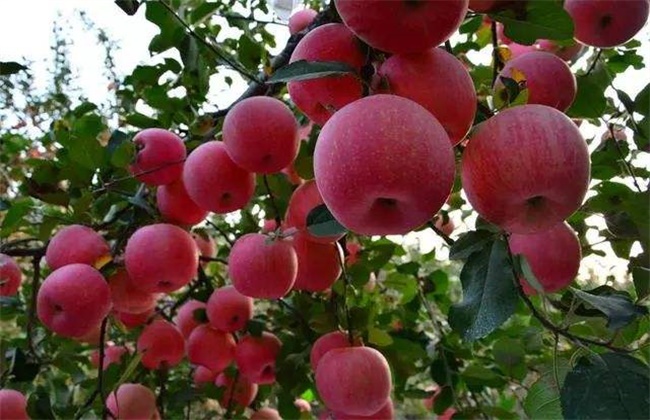Key points of Apple Management in Spring
Spring is an important season for apple trees, when the temperature rises, and it is the season of recovery of all things. Spring management is the basis of apple management throughout the year. Only by doing a good job in this season can we lay a good foundation for annual growth and development, blossom and fruit, and achieve the goal of high and stable yield. Let's take a look at the key points of Apple's spring management with the editor.

1. Watering and fertilization before sprouting
Those who did not apply base fertilizer in autumn last year should be replenished in time after the soil was thawed and applied available nitrogen fertilizer at the same time. Generally, young trees were topdressing 0.4-0.6 kg of ammonium bicarbonate or 0.2-0.3 kg of urea, while adult trees were topdressing 1-2 kg of ammonium bicarbonate or 0.5-1 kg of urea and 2-4 kg of superphosphate. After watering, pay attention to loosen the soil and preserve soil moisture, destroy the soil condition, increase the soil permeability, and create a good environment for root growth and development.
2. Pre-flowering re-cutting
Pre-flowering re-pruning properly removes part of the weak flower buds and truncated part of the medium-long fruit for the plants with too many flowers, while for the non-flowering slender branches and weak fruit branches, the growth is too dense and the rest is short. On the other hand, for the branches that do not have the ability to bear fruit, they are shrunk in time to the strong buds at the back, and the flower branches are put into 3-4 flower buds. For the branch group that has not formed a flower bud for 2-3 years, it should be retracted to the posterior branch or blind node, and the flower branch rate should be controlled at 25% and 30%. Multiple circular cutting of one-year-old branches before sprouting can increase the germination rate and branch-forming ability, and peel around in the flowering stage of young trees, which plays a significant role in controlling overgrowth and increasing fruit setting rate.
3. Flower and fruit management
In the bud separation period, about 20 cm leaves an inflorescence. For weak trees with too many flowers, some weak flowers are removed, and normal fruiting trees have more than 2-3 flowers per inflorescence. The method of artificial pollination or orchard bee release can be used to significantly increase the fruit setting rate and yield, and it can also spray rich plant nutrient solution at full flowering stage, which has a very significant effect on improving fruit setting rate and yield.
4. Pest control
The comprehensive prevention and control of diseases and insect pests in early spring can achieve twice the result with half the effort. First of all, the garden should be thoroughly cleared, the rough skin and warped skin of the plant should be scraped clean, and the diseased branches, withered branches, residual stumps, disease and insect pests, weeds and fallen leaves should be burned or deeply buried in combination with basal fertilizer, so as to reduce the base number of diseases and insect pests. In the germination period, you can enrich the microbial nutrient solution in the greenhouse of the whole garden, which can enhance the photosynthesis of the leaves of fruit trees, and the leaves are thicker and brighter. In addition, it should be noted that the peak of apple rot in spring, immediately after the onset of the disease should be scraped off, directly to the xylem, while scraping off the healthy skin around the spot 0.5cm width, scraping after scraping rich source microbial nutrient solution.
The above is an introduction to Apple's spring management points. I hope I can help you. If you want to know more about it, please follow us.
Related
- Moge, come on! The staff of the peasant association in the producing area of cantaloupe were frightened when the crowd gathered.
- Causes and Solutions of low Fruit setting rate of Apple
- Symptoms and control measures of passion fruit virus disease
- Fruit growing lesson: how do apple orchards keep high yields?
- Can you build orchards in the mountains? What are the pros and cons?
- How to manage the coloring period of Crisson grape?
- This paper introduces the processing technology of two kinds of fig products.
- How much is a month for retired teachers in rural areas by 2020?
- How can strawberry planting increase sugar content? We should pay attention to management in many aspects.
- What are the cultivation techniques on how to improve the yield of golden fruit?



